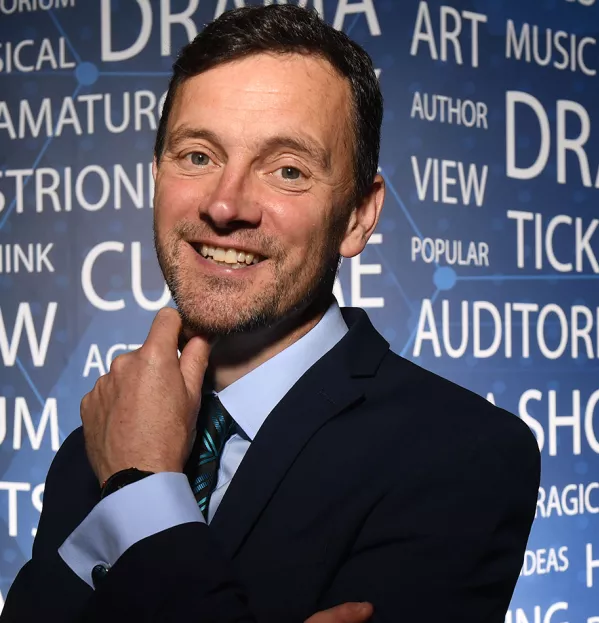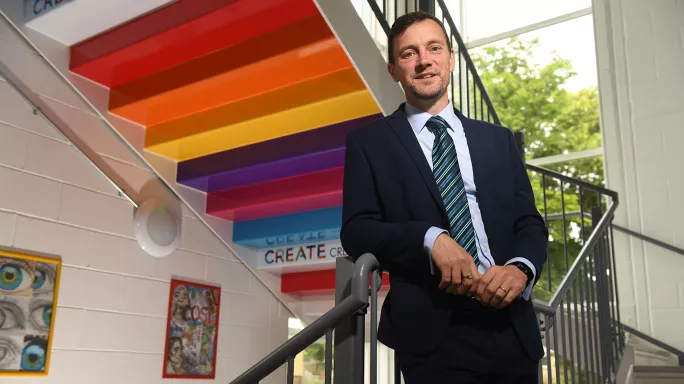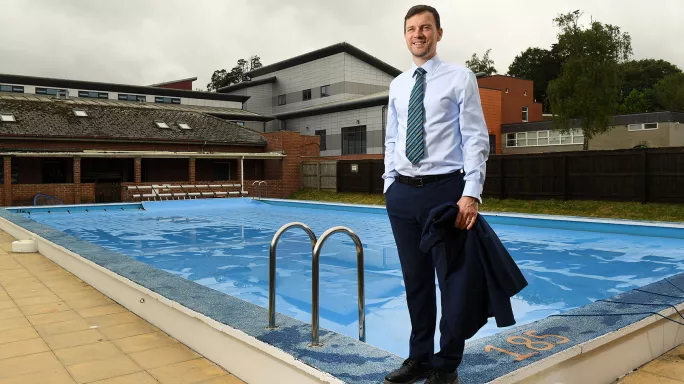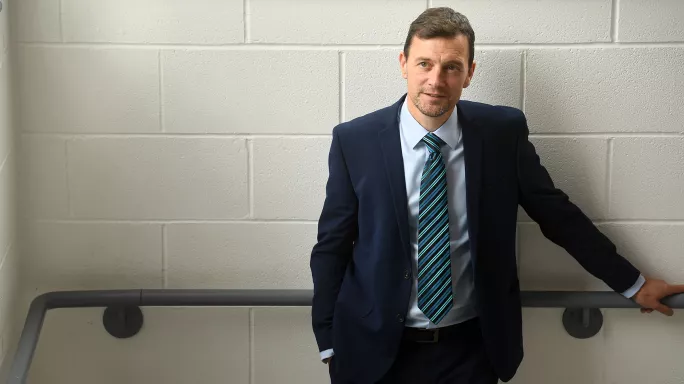- Home
- Leadership
- Strategy
- 10 questions with...Matthew Shanks
10 questions with...Matthew Shanks

Matthew Shanks is chief executive of Education South West, a multi-academy trust with 15 schools in Devon, having held this role since 2020. He started his career as an English teacher.
Answering Tes’ 10 questions, he talks about being ridiculed in French lessons when he was at school, how his parents’ experience of education led him to teaching, and why he looks to Japan’s education sector for inspiration.
1. Who was your most memorable teacher and why?
Being utterly honest, the most memorable is a language teacher I had in the first couple of years of my secondary school in Manchester. Often this teacher would have me standing in the bin while the class chanted:
Où est Shanks? (Where is Shanks?)
Shanks est dans la poubelle. (Shanks is in the bin)
Pourquoi est Shanks dans la poubelle? (Why is Shanks in the bin?)
Parce que Shanks est un imbecile, monsieur la professor. (Because Shanks is an idiot, sir)
That stuck with me because - although the teacher might say I can remember all that French - he wasn’t making me feel good about myself.
The flipside of that was my history teacher, Mr Ward, and my English teacher, Mr Mayne. If you made mistakes in learning, they would support you. They gave me a sense of belonging.
More Tes’ 10 questions:
- Lee Wilson, CEO of Outwood Grange Academies Trust
- Carol Dewhurst, CEO of Bradford Diocesan Academies Trust
- Moira Marder, CEO of the Ted Wragg Trust
In those lessons where I wasn’t in a safe place - like French - I didn’t do my best learning, and as a result, I wasn’t the best student. I played up.
But Mr Ward and Mr Mayne supported me. They showed me the art of the possible, and I went on to take both English and history to A level, and then English to degree level.
2. What were the best and worst things about your time at school?
The worst thing was not feeling good enough, not feeling like I belonged. You can see how that might have happened, given my French teacher.
The best things were the opportunities that school gave me outside the classroom - sports like football, athletics, hockey. Also amateur dramatics was a big part of my life, too. I found that performing on stage gave me a sense of belonging that I didn’t always find in the classroom.

I did do well academically, though, and was the first in my family to go to university, along with my sister. I got the most out of learning when it was thought-provoking rather than hoop-jumping to pass examinations. That’s what we try and instil at Education South West.
3. Why do you work in education?
Because of my parents. They worked really hard and were determined to give me and my sister the education they didn’t have: my dad left school when he was 11 and my mum when she was 14.
Education was revered in our household as a force for good, and that was passed down to me.
Education empowered me to be able to make choices about my own life. I think everybody should have those opportunities, no matter their background.
4. What are you proudest of in your career and what do you regret?
I’m proudest of our trust’s staff, its ambitious and inclusive leaders who value every single child.
The other thing I’m really proud of is that at Education South West we have a firm belief that outcomes come in many forms and are not just dictated by examinations.
I don’t really have regrets - but I have lots of moments of learning! For example, in my first year of teaching, I had a Year 9 class who were quite rowdy. I was reaching boiling point and put my hands on the desk at the front to admonish them.
I felt this hand on top of mine, and I looked down, and it was a student, and they looked up at me and said, “Remember, Sir, we’re only children.”

That has stuck with me. I don’t regret my frustration - I think it’s perfectly normal to become frustrated when things aren’t going as you want. But it’s about learning to remain calm. That moment shaped me because it made me think about the type of leader I wanted to be.
5. Who would be your colleagues in your perfect school staffroom?
Anyone who genuinely puts children first and leaves personal gain at the door to act to the benefit of children.
And anybody who is prepared to put their hand in the air and admit mistakes. Everyone makes them and we can deal with them, but we can’t deal with obfuscation. I am so lucky to have appointed leaders within the trust and across our staffrooms with these attributes.
6. What are the best and worst aspects of our school system?
I think the academy system is both the best and the worst.
The best academy trusts promote and practise collegiality and collaborative working, open and selfless sharing of resources, staffing and ideas.
But the worst thing is the way the MAT system has come about without any real design, and that has left trusts fighting among themselves for funding, staff and wraparound children’s services.
7. Who in education has influenced you the most?
I really admire Estelle Morris [Baroness Morris of Yardley], the former education secretary, for her principled leadership and humility.
I used to read [educationalist and academic] Ted Wragg’s column every single week on a Friday in Tes Magazine back in the day.
And [former civil servant and educationalist] Sir Michael Barber continues to talk sense all the time.

But the simplest answer is the children, because they are the reason why we do what we do.
8. If you became education secretary, what is the first thing you would do?
The first thing I would do is establish a cross-party education commission. I don’t think our system of government is geared to ensure long-term consistency because of the way ministers come in and out of office.
So the commission would focus on establishing a degree of certainty for school leaders. I’d set it up so that it ran across changes in government. There are examples of that in other countries, such as in Estonia, Japan and Singapore.
9. What will our schools be like in 30 years’ time?
Education is what builds society. So I’d like to think the status of schools and teachers will be raised.
I hope also that the education system has a more level playing field. It’s not right that children don’t have choices because of the circumstances in which they were born.
I feel hopeful that these changes will happen because I’ve been in education for 30 years and I haven’t met a leader who isn’t focused on making things better for children. That power just needs to be unleashed, and I think the way to allow that is by letting schools get on with it.
10. Who has made the biggest difference to education in the past year?
I think education is a group effort that requires collaboration, and I gravitate towards people who work with others to make things better for everybody. So I can’t choose just one person.
But I’d name bodies such as the Queen Street Group and the Confederation of School Trusts, which are doing powerful work, and I also admire the principled work of the Fair Education Alliance and the Social Mobility Commission.
You need a Tes subscription to read this article
Subscribe now to read this article and get other subscriber-only content:
- Unlimited access to all Tes magazine content
- Exclusive subscriber-only stories
- Award-winning email newsletters
Already a subscriber? Log in
You need a subscription to read this article
Subscribe now to read this article and get other subscriber-only content, including:
- Unlimited access to all Tes magazine content
- Exclusive subscriber-only stories
- Award-winning email newsletters



